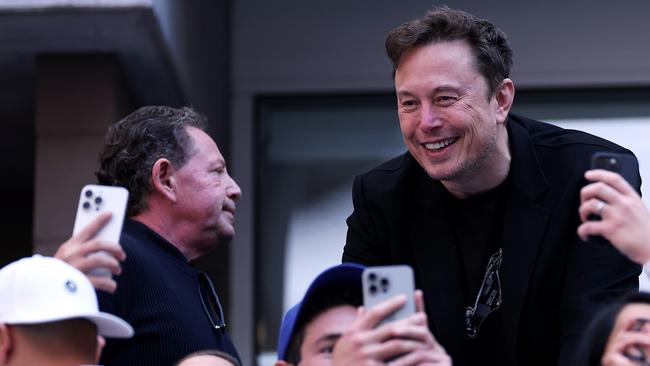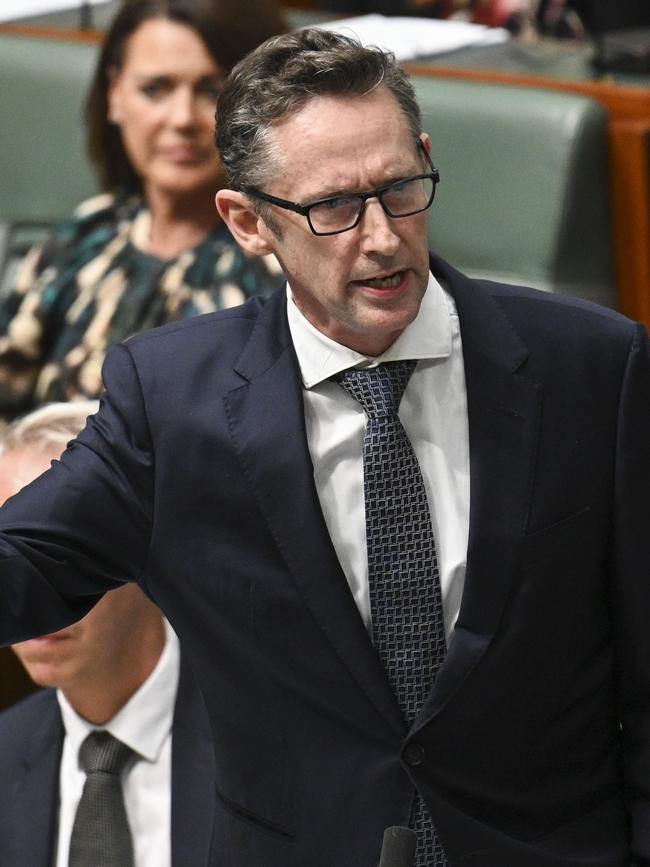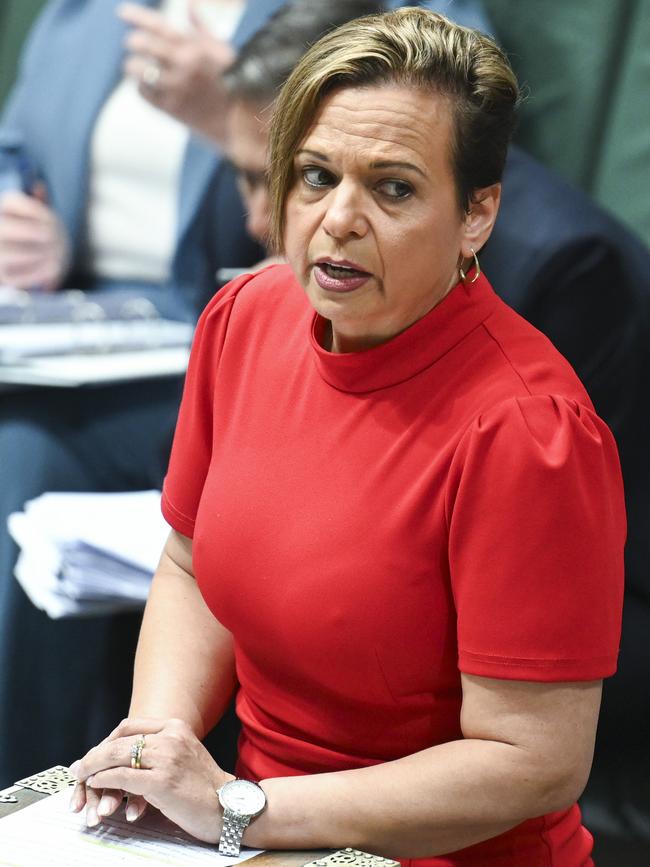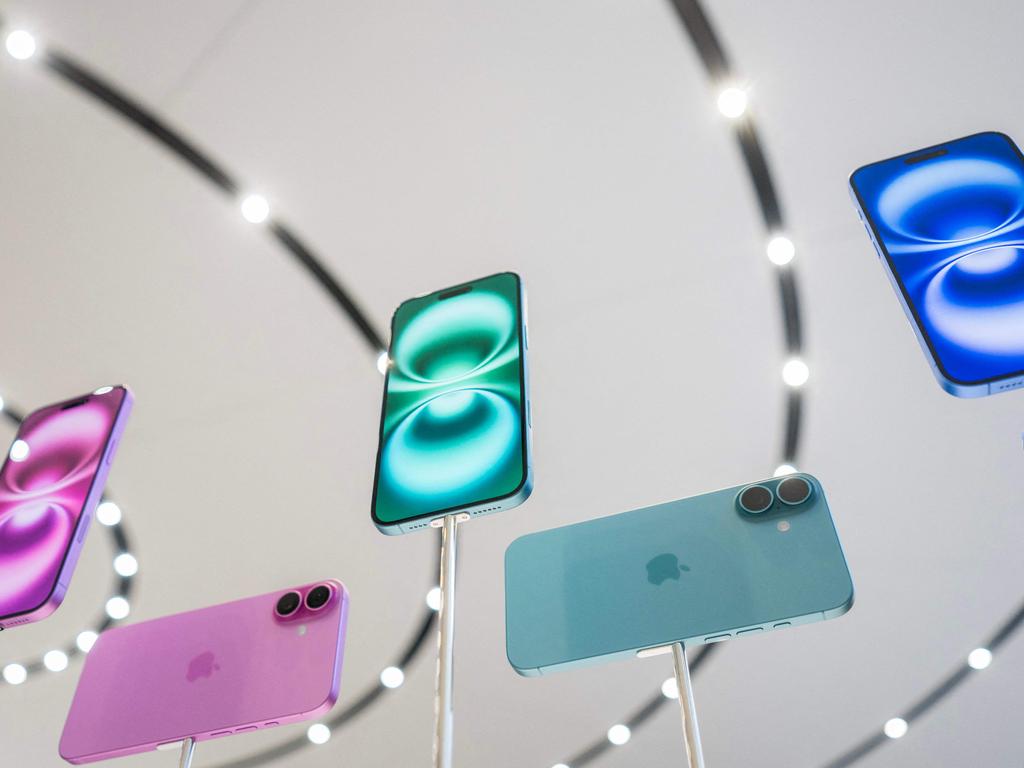Australia’s new social media bill ‘worryingly poor’
A tech policy group has criticised proposed misinformation laws as ‘ineffective’ and ‘worryingly poor’ as a fresh battle ignites between Elon Musk and the Albanese government.

Proposed laws to crack down on social media giants spreading misinformation online are captive by “ineffective and hostile industry codes”, a tech policy group warns as a new war of words erupts between Tesla billionaire Elon Musk and the Albanese government.
The federal government has announced new legislation, under which social media platforms such as X and Meta’s Facebook and Instagram face fines of up to 5 per cent of their global revenue if they fail to rein in misinformation.
Mr Musk said the government were “fascists” while Assistant Treasurer Stephen Jones retaliated calling the tech baron a “crackpot”, sparking a fresh feud with the tech baron.

Communications Minister Michelle Rowland said the proposed laws aimed to combat conspiracy theories being spreading from the “fringe to mainstream” such as the “notion that 5G towers were circulating Covid-19” while curbing “dangerous, unproven health remedies spruiked by social media influencers to make a quick buck”.
But she said the proposed laws focused on self-regulation, with “nothing in the bill” enabling the communications regulator to take down individual pieces of content or user accounts.
Policy group Reset.Tech Australia branded the bill as “worryingly poor” and self-regulation has so far failed Australians.
“Put simply, industry has had several years to get the code making right and have failed, despite persistent feedback from both ACMA (Australian Communications and Media Authority) and civil society. The Bill currently considers regulator standards-setting as a ‘last resort’, but it is evident that the threshold for ‘last resort’ has already been crossed,” Reset.Tech said in a new report.

“Reset.Tech Australia supports enhanced regulatory powers for misinformation and disinformation, but is deeply concerned the process outlined is captive to an ineffective and hostile ‘industry codes’ process that lets Big Tech off easy and stymies public accountability.”
Reset.Tech was also concerned about the transparency report that social media platforms would need to provide to ensure compliance with the legislation.
“The ‘transparency’ mechanisms under the code, which require platforms to self-publish ‘transparency reports’ each year, are worryingly poor. A transparency report may comply with the requirements of the code while simultaneously breaching misleading and deceptive conduct for the purposes of Australian Consumer Law.”
It also criticised the bill’s “accountability” mechanisms – which is namely an independent review process and public complaints model – as “defective”.
“The independent review process simply cannot incentivise best practice and compliance in reporting, as its scope is confined to publicly verifiable claims. This means platforms’ claims cannot be independently scrutinised. In other words, platforms can freely mislead the public in their reports without the same fact-checking their users are subjected to on their services.”
Reset.Tech said the complaints Model “severely disincentivises public complaints against code signatories”, given there was no mandated access to platform data about representations contained in transparency reports.
It also criticised the need for complainants to satisfy a “materially false” threshold – which “arguably imposes a higher threshold of accuracy on complainants than the standard required to be adhered to by signatories when composing transparency reports”.
“ACMA should be immediately empowered to bypass industry codes and set a standard. The Bill anticipates as a primary route that the ACMA supervises an industry code making process. Evidence and experience shows this will replicate the mistakes of the past.”
But Elon Musk – who acquired Twitter for $US44bn in 2022 before rebranding it X – slammed the Albanese government as being “fascists” over its plans to introduce the misinformation bill.
Opposition communications spokesman David Coleman said he wouldn’t describe the government as facists. “Obviously, I wouldn’t use those words. I mean, I would say incompetent, grossly incompetent. I would say contemptuous of free speech,” Mr Coleman told Sky News.
But Assistant Treasurer Stephen Jones told the ABC that Mr Musk’s comment was “crackpot stuff”.
“For the life of me, I can’t see how Elon Musk or anyone else, in the name of free speech, thinks it is OK to have social media platforms publishing scam content, which is robbing Australians of billions of dollars every year,” Mr Jones said.
It comes after Mr Musk accused Australia’s eSafety Commissioner of trying to control “the entire internet” after she won an urgent court ruling earlier this year requiring his social media platform X to remove video of the alleged stabbing of Sydney cleric Mar Mari Emmanuel.
The eSafety Commissioner later abandoned the legal action to force X to remove the footage.






To join the conversation, please log in. Don't have an account? Register
Join the conversation, you are commenting as Logout